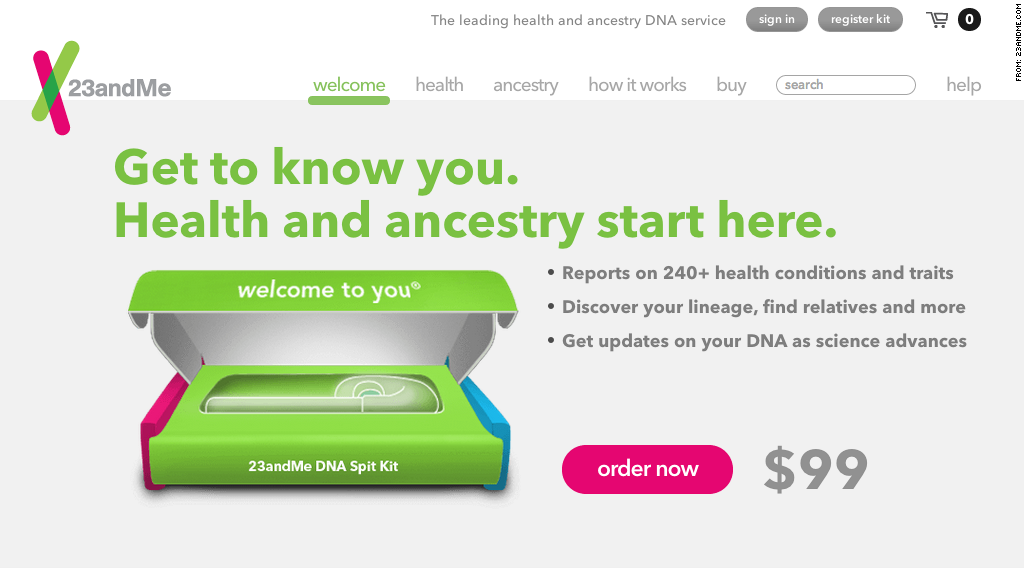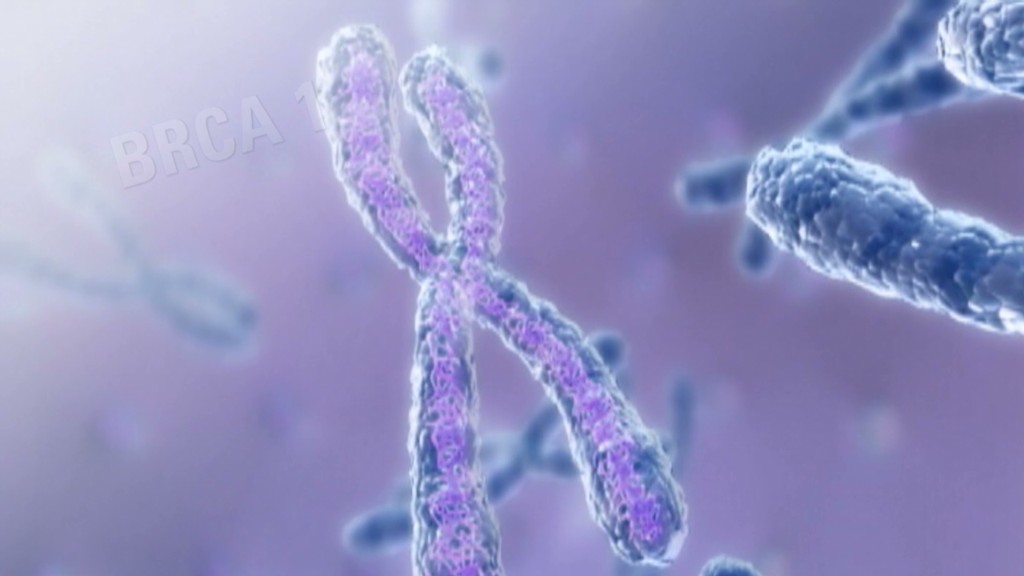
The Food and Drug Administration has ordered genetic testing firm 23andMe to stop sales of its home-testing kits, saying the Google-backed company has failed to prove the validity of its product.
23andMe is led by Anne Wojicki, who co-founded the company in 2006 and recently separated from her husband, Google co-founder Sergey Brin. Google (GOOG) has invested millions of dollars in the company in recent years.
23andMe offers $99 saliva-testing kits that customers use at home and then send to the company for reports on their heritage, their receptiveness to medications and their genetic risk for dozens of health conditions.
"Strike back before cancer has a chance to strike," the California-based company says on its website.
But in a letter dated Friday and posted on its website, the FDA said that despite extensive correspondence with 23andMe, regulators "still do not have any assurance that the firm has analytically or clinically validated the [personal genome service] for its intended uses."
Related: The race to a $100 genome
The agency warned of the potential health consequences for customers whose results contain inaccurate positive results for health risks. Women whose results indicate a risk for breast cancer, for example, could undergo unnecessary surgery or chemotherapy.
The FDA said 23andMe "must immediately discontinue marketing the [personal genome service] until such time as it receives FDA marketing authorization."
23andMe said it "recognize[s] that we have not met the FDA's expectations regarding timeline and communication."
"Our relationship with the FDA is extremely important to us and we are committed to fully engaging with them to address their concerns," the company said in a statement.
Wojicki has claimed that 23andMe has already mapped the genotypes of nearly 500,000 people. The company's name is a reference to the 23 chromosome pairs present in human cells.
FDA spokeswoman Erica Jefferson said the agency "supports innovative products that can be demonstrated to work as claimed."
"The FDA has worked and will continue to work closely with any company marketing direct-to-consumer genetic tests without stifling innovation," she said.

A variety of commercial genetic testing companies have emerged in recent years, though most aren't regulated. The sector has been criticized by the Government Accountability Office, which warned in 2010 that consumers were receiving results "that are misleading and of little or no practical use."
The FDA announced plans to regulate genetic testing in 2010, but has yet to issue guidance on the subject, according to the National Human Genome Research Institute. The agency has been handling its enforcement responsibilities on a case-by-case basis.

